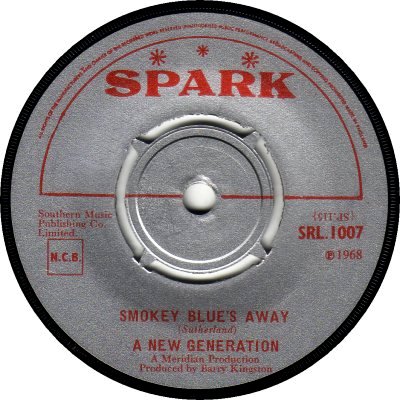
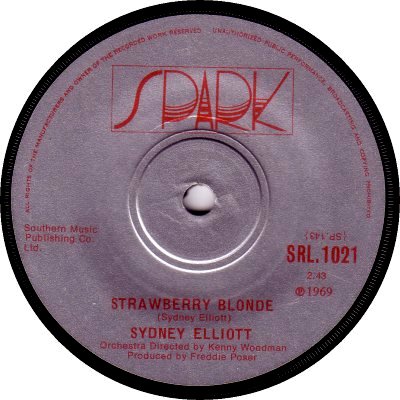
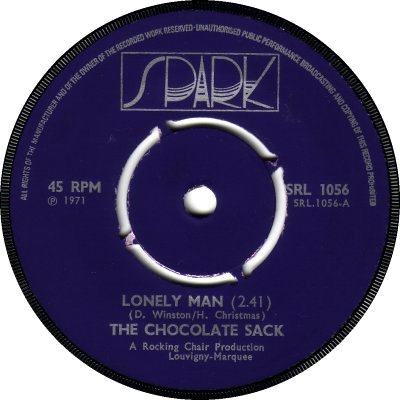
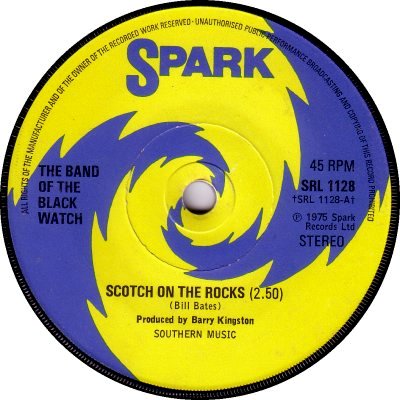
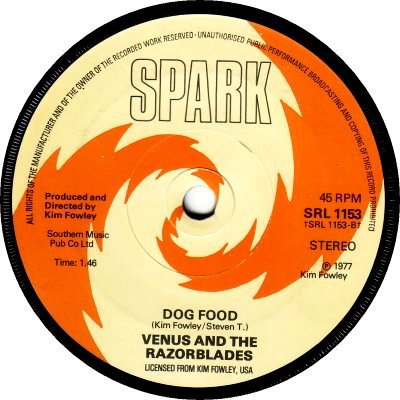
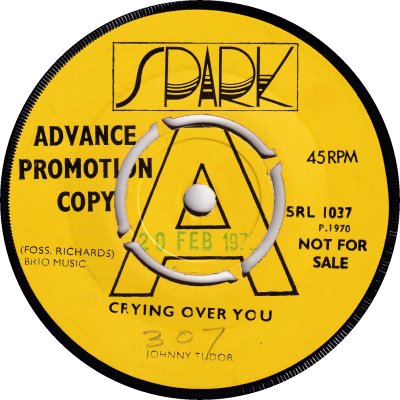
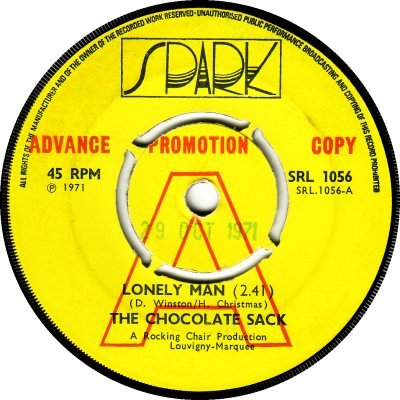
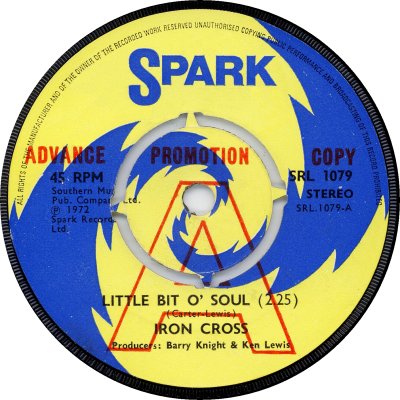
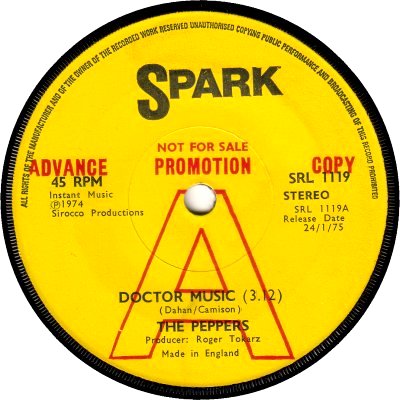
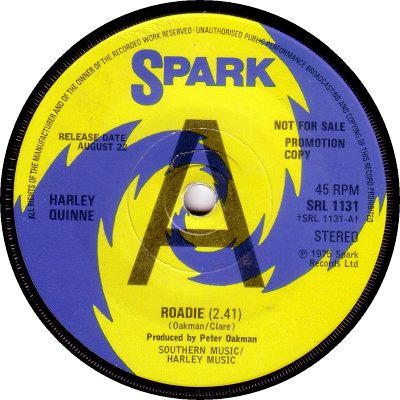
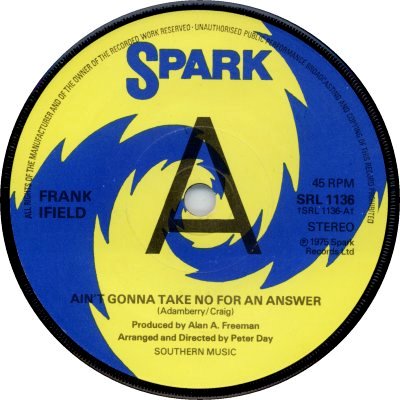
Essentially the record label of the Southern Music publishing company. Spark issued its first records early in 1968, using an SRL-1000 numerical series. 'Record Retailer' of the 10th of January called the company a 'new independent' and said that it had been formed by Southern and music publisher Freddie Poser. The article added that it was to have a 'flexible policy' with regard to releases: in addition to its own repertoire it would host independent productions and material from overseas. Pressing and distribution were to be by Decca / Selecta, and the first releases were due out the following week. There appears to have been a slight delay, as a later 'RR' (24th January) gave a revised release date of the 23rd of February for the first two singles. The launch duly happened. 'RR' of the 13th of February 1969 reported that Spark records were to be promoted by the Morgan sales force, but as Morgan failed to last until the end of the decade the arrangement must have been short-lived. In October 1969 Spark switched its distribution (and presumably its manufacture) from Decca / Selecta to Pye; 'RR' of the 4th of October gave the date of the changeover as the 24th. The new arrangement appears to have been, or to have become, a licensing one rather than a plain manufacture / distribution one, as 'Music Week' of the 3rd of March 1973 referred to Spark as having been licensed to Pye 'for a long time'.
The company's early singles included a number of items which are now much-sought-after by collectors of Psychedelia, but it had to wait until 1971 for its first hit, Keith Michell's, 'I'll Give You The Earth' b/w 'I'm Surprised' (SRL-1046), which reached the Top 30 and is now the commonest blue-labelled Spark in charity shops and car boot sales. The '70s saw a steady stream of releases, apparently with the emphasis on Pop or Northern Soul. Spark's second success came in 1974, in the form of a Dance instrumental, 'Pepper Box' by The Peppers (SRL-1100). According to 'MW' of the 6th of March 1976 the company had been struggling before the Peppers' success, but had turned the corner and had subsequently enjoyed seven UK hits and one in the USA. In passing, the article added that Spark was currently handling its own marketing, advertising and promotion, but Pye reps were covering Spark material.
1975 was indeed a good year for the label, with three hits by Wigan's Ovation, two by the Band of the Black Watch and one by Tommy Hunt. Hunt followed up with two more Chart entries the following year, and Linda & the Funky Boys added another, but all was not well. 'Music Week' of the 12th of February 1977 broke the news that Bob Kington, managing director of Spark and of Southern Music, was leaving after twenty-one years; reportedly he was unhappy that, following a change of emphasis at Southern, Spark was to be kept on 'as a sideline'. His son Barry and producer Mike Walker were leaving with him, and he was looking at the possibility of forming another company - in the event he went on to found RK Records (q.v.). Perhaps as a result of its diminished status and of losing such important members of its staff, Spark's Chart action ceased. According to Billboard of the 18th of March 1978 the company had re-signed its pressing and distribution deal with Pye and had signed Kim Fowey's American 'Mystery' label for the world (excluding the USA and Canada), but that burst of activity seems to have been the last: there appear to have been no more Spark singles released after June of that year.
As far as label designs are concerned, the first nineteen records had a silver label with red printing, with the logo and three small sparks enclosed in a half-circle at the top (1). With SRL-1020 the logo changed: the word 'SPARK' was now enclosed in a box, with electricity short-circuiting between the uprights of the letters (2). The colours changed to mid-blue with silver printing with the release of SRL-1029, though the design remained the same; the blue darkened towards the end of 1969 (3). There appear to have been occasional colour differences: SRL-1024, from the silver era, has a dark blue label, while SRL-1052 seems to have been issued with a black-on-yellow label, similar in appearance to the second promotional copy shown above (7) but without the red lettering. In July 1972 the sober blue design was replaced by a much more striking yellow-and-blue one (4). This lasted until the spring of 1977 and SRL-1152, when it changed colours to fawn-and-orange and received a slightly altered logo (5). 1975 saw a few singles issued with a 'Northern Soul' overprint under the label name; I've given these their own separate page, for the sake of interest.
There were no dedicated Promo labels in the Decca era. Promos in the Pye years were yellow at first, with a hollow central black 'A' and the words 'ADVANCE PROMOTION COPY' on them at 10 o'clock, after the Pye style of the time (6). Again following Pye's lead, in March 1970 the 'A' and the wording turned red and changed their positions (7). After the change to the blue-and-yellow labels a handful appeared with overprinted issue labels (8), but these were soon replaced by yellow labels with an unboxed logo (9). From May 1975 overprinted issue labels were used (10). The 'Not For Sale' wording on these disappeared after only a few issues; shortly after this the big black 'A' shrank slightly (11).



Copyright 2006 Robert Lyons.

